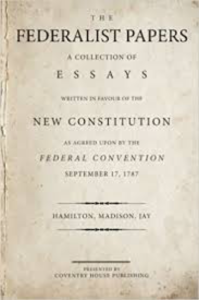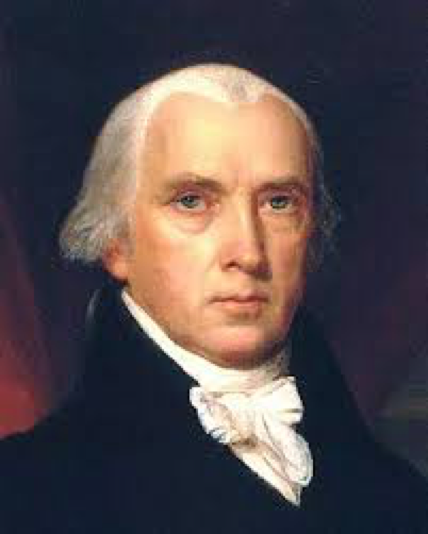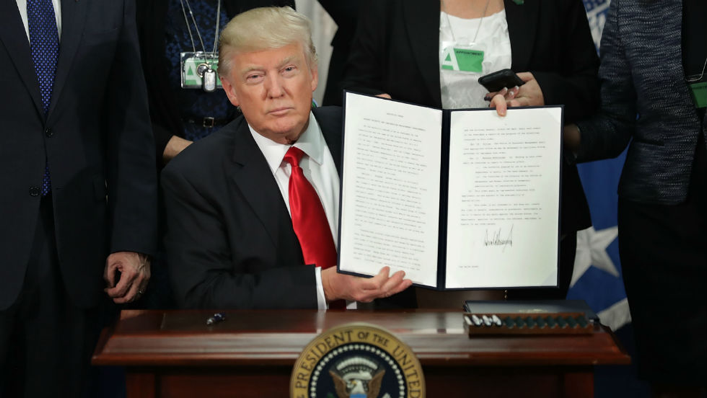 As a college student I thought of political science as an adjunct of philosophy. I didn’t appreciate its practical value. Later, in law school, I recognized its value in creating the infrastructure for our American institutions but only insofar as its organizing principles provided for the efficient operation of government. Today, with more experience in the world and having lived on three continents, I have a full appreciation for the complexity and genius of American democratic institutions, but lately I’ve wondered if America hasn’t become too complacent with a system that’s been durable and adaptable for more than 200 years?
As a college student I thought of political science as an adjunct of philosophy. I didn’t appreciate its practical value. Later, in law school, I recognized its value in creating the infrastructure for our American institutions but only insofar as its organizing principles provided for the efficient operation of government. Today, with more experience in the world and having lived on three continents, I have a full appreciation for the complexity and genius of American democratic institutions, but lately I’ve wondered if America hasn’t become too complacent with a system that’s been durable and adaptable for more than 200 years?
No one would mistake me for an “originalist” in the mold of Antonin Scalia, but world events have reinforced my interest in the American blueprint and bolstered my faith in the value of its “timeless” traditions. In view of the current political chaos it’s probably a good time to review how the founders arrived at the republican form and how it differs from a disturbing trend toward authoritarian rule in the world today.
In the fall of 2016, not long before our national election, M and I spent three weeks in Washington DC, Virginia and Maryland visiting our nation’s capital and the homes of Washington, Jefferson, Madison, and Monroe. It was intentional. After nearly two years of presidential electioneering, our country seemed to be veering off course and we wanted to check in with the founders and their guiding principles.
 America’s political odyssey began even before the Constitutional Convention in Philadelphia. In 1786 James Madison, a member of the Virginia House of Delegates, spent months pouring over crates of books Jefferson had sent him from France describing various forms of government.
America’s political odyssey began even before the Constitutional Convention in Philadelphia. In 1786 James Madison, a member of the Virginia House of Delegates, spent months pouring over crates of books Jefferson had sent him from France describing various forms of government.
Using the Virginia Constitution as his model and convinced that a strong central government would unify the country, he carefully studied Hume, Locke, and other enlightenment scholars for organizing principles. In 1998, historian Douglas Adair called Madison’s work “probably the most fruitful piece of scholarly research ever carried out by an American.”
The final document, ratified in 1787, was a collaborative effort debated vigorously by Madison, Hamilton, and John Jay in The Federalist Papers – each winning some important points. The US Constitution is both unique and aspirational. In school we learn that American democracy is built on a system of checks and balances, citizen protections, interconnected branches of government, and procedural rules governing its operation.
Last week the US Senate abandoned a tradition that had endured for decades, and in doing so took a nick out of that founding document. Tipping points are hard to nail down, but last week’s move abolishing the filibuster of Supreme Court nominees showed that we’ve reached a point where cautious reverence for tradition has given way to the need for instant gratification. When the Republican Senate invoked the “nuclear option” to confirm Supreme Court Justice Neil Gorsuch, it inserted a wedge in our procedural democracy, and its importance is as a precursor to abolishing the filibuster entirely and reducing all Senate votes to a simple majority. The filibuster is what sets the Senate apart from the House of Representatives. It’s an important difference and one that should not be abandoned.
I’m not blaming the Republicans; I think Justice Gorsuch is eminently well qualified, as was Merrick Garland, President Obama’s nominee. Exercise of the “option” was pre-ordained when the Democrats used it for lower court federal judges in 2013. What is upsetting is the mean-spirited infighting attending the nomination of Judge Garland and the Democrats’ vengeance-tinted threats accompanying Justice Gorsuch’s confirmation.
As a concerned observer, I’m disappointed that an enduring tradition was cast aside in a flurry of partisan infighting. As we move forward, our elected officials from the President on down need to pay more attention to the future and less to personal or partisan victories.
Traditions, however, are reviewable. They should be, but the Brexit vote in the UK, recent events in Russia, North Korea, Turkey, and Hungary, as well as the upcoming elections in France and Germany remind us of the importance, vulnerability, and fragility of government institutions. It’s a good time to refresh our knowledge of government and renew our commitment to the welfare and protection of all Americans.
Current world events stand in sharp contrast to the structures and procedural protections of our own democracy and electoral processes. Madison and the other founders created a tripartite system that divided power and distributed function between the executive, legislative, and judicial branches of government. This is its genius; in distributing the responsibility, no one person or branch has the power to dictate policy or outcome. It may be slower and more cumbersome than other forms but this is the difference between American democracy and the worldwide trend toward authoritarian autocratic rule.

Unfortunately, President Trump is not a student of history. Nor does he understand the functionality of our institutions. Since the inauguration he has ignored protocols and attempted to rule by Executive Order* – as an autocrat – but, unlike his predecessor, denigrating judicial challenges to his authority and hoping a divided and dithering Congress will implement his undefined political philosophy. Surprisingly, even yet we don’t know if he’s a Republican, a populist, an autocrat, or just a loose cannon? It doesn’t really matter. The votes have been cast; he is our 45th President. What does matter is that he learns to work within the system that put him in office and has endured for 228 years. Someone needs to tutor him with an updated world-wise Civics 101 course.
*It should be noted that a frustrated President Obama used the EO at the end of his lame duck term, but never criticized the judiciary or questioned the authority of Congress.
































Unfortunately Jack, #45 doesn’t have the attention span to learn civics. Maybe if someone made it a sitcom with many mentions of Himself, he could pay attention.
Trump appears to be holding the 10 commandments. Has he just come down the mountain after his conference with Yahweh? No doubt he thinks so.
Jack, I am appalled at the status of vindictive politics that has enveloped our nation in the last 8 years! I am ashamed at the inability of either party to act honorably and intelligently in governing our great nation! It has developed into intractable inability to govern in gentlemanly discussion and I’m ashamed of the whole process. We have an election coming up to fill Ryan Zinke’s position vacated when he was selected to join Trumps cabinet. The candidate on the Conservative side is a wealthy self made businessman running against a local guy that I know really well. He has been a traveling musician and is totally inundated with outside money. He has been unable to manage his finances for years and has no political experience. The campaign from both sides has been dirty and has no redeeming qualities and makes me sick!
There I have blown my mouth. Fix things will you?
Jack,
Thanks.
I can’t, just now, muster more.
These are times I never dreamed would occur.
Jon